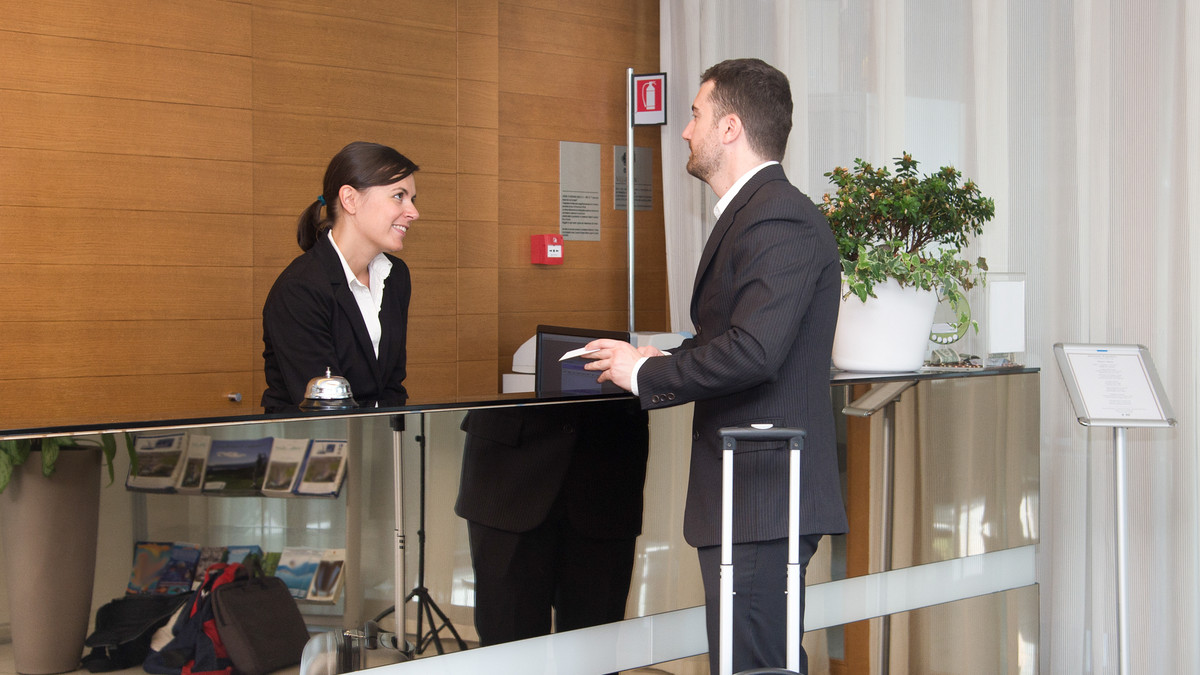Whenever it seems that customer expectations can’t rise any higher, they do. Our ‘State of Digital Care’ report found that 81 percent of consumers have higher digital customer-service expectations in 2018 than they did the previous year.
To continue to earn their customers’ loyalty, hospitality brands are embracing technology. And in particular, they are finding that Artificial Intelligence (AI), Virtual Reality (VR), and the Internet of Things (IoT) offer a mutually reinforcing equation of excellent service:
1. AI helps brands personalize the customer experience
Hospitality brands are increasingly on the hook for personalizing customers’ experiences the way Amazon recommends purchases and Spotify recommends songs.
While the idea isn’t new — rewards programs for capturing customer information have been around for decades — what’s different is that consumers expect continuity between their online and offline experiences. Guests want an offer they receive on an app to be valid at checkout, to fix an in-person service issue by chatting with the brand on Facebook Messenger, and for hotels, taxis, and airlines to remember their preferences. Because private Social Messaging conversations are asynchronous and persistent, they tie guests’ pre- and post-booking conversations together so service agents always know their history.
It can take a lot of work to unify all that disconnected data, which is why hospitality brands are investing in data warehousing and algorithms to help them know guests better than they know themselves.
Best Western, for instance, has deployed Amazon’s Alexa smart devices as in-room concierges. The brand aggregates this interaction data with online and offline behavioral data to make sure that consumers’ preferences travel with them. Similarly, Premier Inn makes use of Navigator on Twitter for Conversational Automation. This enables a dedicated, 1-1 delivery of frictionless and discrete customer care whilst automating functionality. Navigator effectively works as an in-line menu system for Twitter private-messaging threads. Preemptively prompting the customer to provide relevant information means that only if necessary is an issue seamlessly escalated to a human agent. A combination of automation and simple human interaction makes for a richer, authentic and more tailored digital customer experience.
2. Virtual reality allows travelers to try before they buy
For families and individuals, planning a getaway can run thousands of dollars and often requires careful consideration. One might think that VR travel experiences that can bring a tropical rainforest or the streets of Paris to life in a viewer’s living room might compete for these dollars. But travel brands are embracing VR as a marketing tool.
The ski resort Destination BC in Whistler, Canada, allows potential visitors to “test drive” its slopes with 360-degree virtual reality videos taken from cameras affixed to skiers’ helmets. Hundreds of hotels, including Atlantis in Dubai, now offer virtual tours, and the hospitality startup Amadeus is developing a VR booking technology where prospective travelers can preview the view from their hotel or airplane seat in advance. All of these experiences allow potential customers to try before they buy, and are a signal that brands are betting that VR taste tests will translate into actual spending on R & R.
VR also allows brands to do more storytelling. VR is often touted for its ability to get viewers to empathize with what they’ve seen to a greater degree than is possible in video or print. This is why tourism boards from Wales to Singapore have launched innovation funds and VR documentary series to tell their stories in ways that strike an emotional chord.
“As a charity, we want to inspire people about the amazing wildlife that we have here,” Gina Gavigan of the Wildlife Trust of South and West Wales told the BBC. “There’s no better way to do that than VR.”
3. Integrating home life with travel life
Best Western’s deployment of Amazon Alexa smart devices is just the tip of the device-berg, if you will. As everyday objects from smartphones and wallets, to speakers, fitness trackers, and vehicles get smarter, consumers will expect brands to predict their preferences on the basis of their personal data footprint.
Take, for example, the things connected devices already know about most consumers. For the 17.5 percent of the U.S. population with smart thermostats, why wouldn’t a hotel room adjust to their preference? For those with streaming video services, why wouldn’t an airline’s in-flight system know which movies they haven’t yet watched? And why wouldn’t a travel booking site’s Messenger chatbot be able to update an existing reservation with a saved payment method without ever putting the customer on hold to involve an agent?
For business travelers, the expectations are even higher. The rental car company Hertz has been successful in the past decade partly because it has relentlessly eliminated points of friction using data. It was among the first to offer self-checkout kiosks and 24/7 customer support using digital channels. In the future, brands will need to do all this and more just to keep up.
The future is connected
Today, AI, VR, and IoT in hospitality are all converging. More connected devices means more data. That means AI algorithms are trained on better datasets and can perform more functions. And a greater understanding of guests’ interests, desires, and experiences means more interactive and engaging VR experiences before, en route, and at their destination.
As customer expectations rise, technology offers an answer. The challenge for hospitality brands is investing in the right systems before it’s too late.
This article originally appeared in Conversocial Blog. This article was written by Seleah Gardiner from Business2Community and was legally licensed through the NewsCred publisher network. Please direct all licensing questions to legal@newscred.com.
